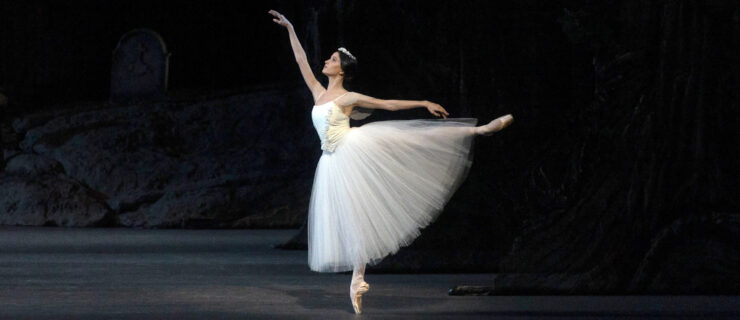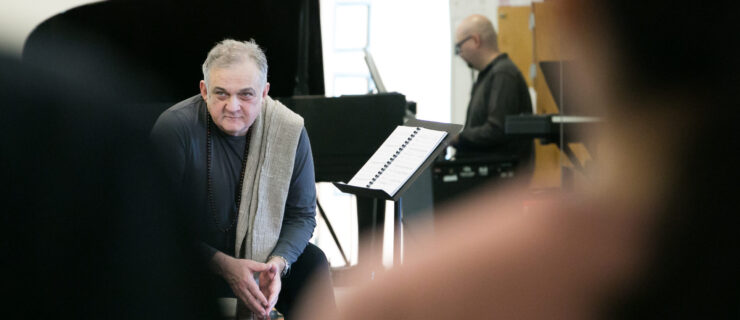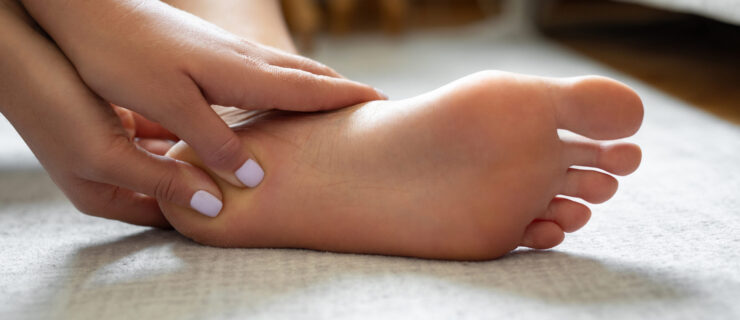Are These 4 Everyday Habits Slowing You Down In The Studio?
Your body’s inner chemist knows exactly what to do to make you a slightly better version of yourself onstage. The excitement of performing gets your adrenal glands to release epinephrine, a hormone that makes your heart work harder and your senses get sharper. It also yields endorphins, boosting your confidence and artistry.
But what if something you did yesterday cancels out that natural bump?
The basics of proper food, rest and exercise seem straightforward, but for dancers, there are biochemical loopholes that come with the irregular schedules and intense demands of the job.
1. You Relax By Drinking After Dancing
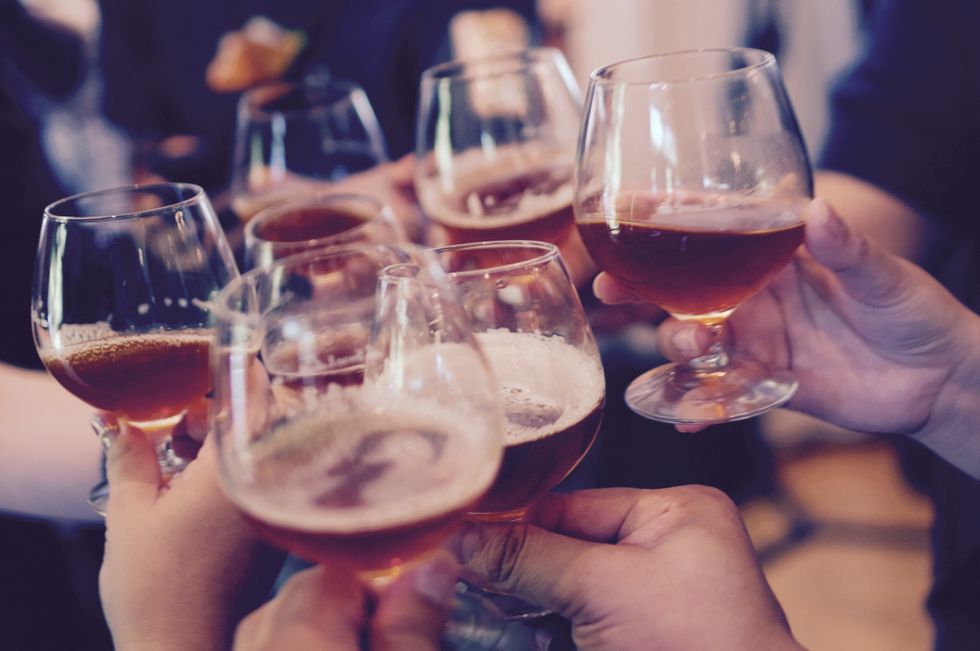
On night of binge drinking can decrease athletic performance significantly. Photo via Unsplash
Alcohol can put a dance career in danger. “I’ve seen how dancers escape through parties and alcohol,” says Jorie Janzen, a registered dietician specializing in sports nutrition who has worked with the Royal Winnipeg Ballet. But this habit leads to a downward spiral.
Even one night of binge drinking can decrease subsequent athletic performance by 11 to 30 percent. That’s because while metabolizing alcohol, the liver is unable to refuel the muscles with glucose. Additionally, even one drink can interrupt the production of human growth hormone, important to muscle recovery. It can also dehydrate you, impairing balance.
“The next day or week in the studio,” says Janzen, “you can see dancers’ heart rates are up because their muscles are flagging. They’re struggling.”
How To Imbibe The Smart Way:
If you do have a glass of wine or beer now and then, eat a good meal first and begin rehydrating immediately. A combination of carbohydrates and fats—quinoa or pasta with vegetables and an oily fish like salmon—will aid your muscle recovery from the day’s training while slowing the absorption of alcohol to your bloodstream. Natural fruit juices are also better mixers than diet drinks, which can speed the absorption.
Beat The Hangover:
If you’re struggling the next day, a 2013 study suggests that Sprite speeds the breakdown of alcohol faster than other drinks. Soda water also works. Eating a breakfast that includes eggs, toast, a banana and fruit juice will help stabilize and reenergize you, as would an electrolyte-enhancing drink like coconut water sipped throughout the day.
2. You Never Make Time To Get Outside
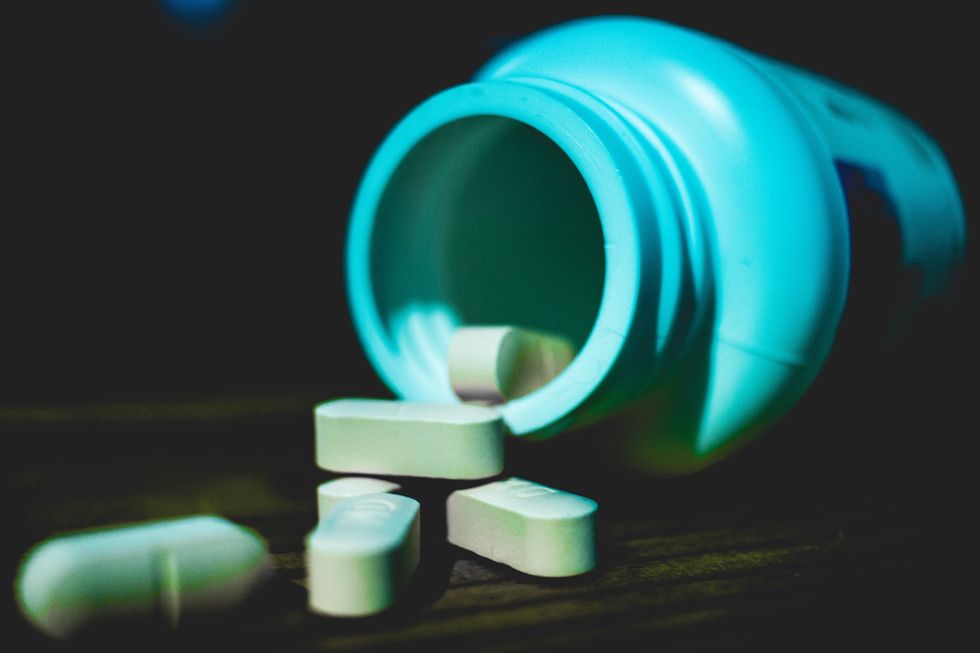
Experts recommend taking a D3 supplement. Photo by Jonathan Perez/Unsplash
Trainers at some UK soccer teams hand out monthly vitamin D supplements. And those players train outdoors, where their bodies are exposed to sunlight, the best source of vitamin D available.
Among dancers, who train inside, low blood levels of vitamin D are rampant. A UK-based team of physicians and researchers has shown that elite dancers who supplement their vitamin D in winter months retain greater isometric strength and vertical jump capacity, and lower their risk of soft tissue injury.
Participating researcher Dr. Roger Wolman, a rheumatologist at the Royal National Orthopedic Hospital in London, says, “It could be an indirect effect, with vitamin D helping our muscles use the calcium and phosphates delivered in our foods. Without enough D, these nutrients are partially lost.”
What You Should Do:
Since it’s hard to overdose on D—not a true vitamin, but a hormone—most dancers can safely take 1,000 IUs of D3 a day, especially from September through March.
3. You Dance On Insufficient Calories

Eating hearty meals will give you more power onstage. Photo by Lily Banse/Unsplash
Because of dance’s intense athletic demands and lean aesthetic, dancers are at a high risk for “relative energy deficiency,” says Janzen. And it’s not just women: male athletes diet, overtrain and suffer the consequences in significant numbers.
Performing without adequate energy—in simplest terms, food—comes with serious health dangers. It can mess with your stress response, causing anxiety or depression, and leave you susceptible to illness. It fouls up your appetite and can lead to binge-eating urges when the body cries “starvation” to the brain. The metabolic changes decrease muscle strength and endurance as your glycogen stores—the energy saved in the muscles and liver that fuels movement—remain consistently low. The brain is also affected, causing low concentration and impaired judgment.
The Smart Solution:
The International Olympic Committee recommends two ways to treat relative energy deficiency: adding a nutrient-rich liquid meal to daily food intake and building a day of rest into the weekly training. Ideally, dancers struggling with this problem should also turn to an interdisciplinary support team, including a sports dietician, exercise physiologist and psychologist with sports training experience.
4. Sleep Becomes Your Last Priority On Busy Days
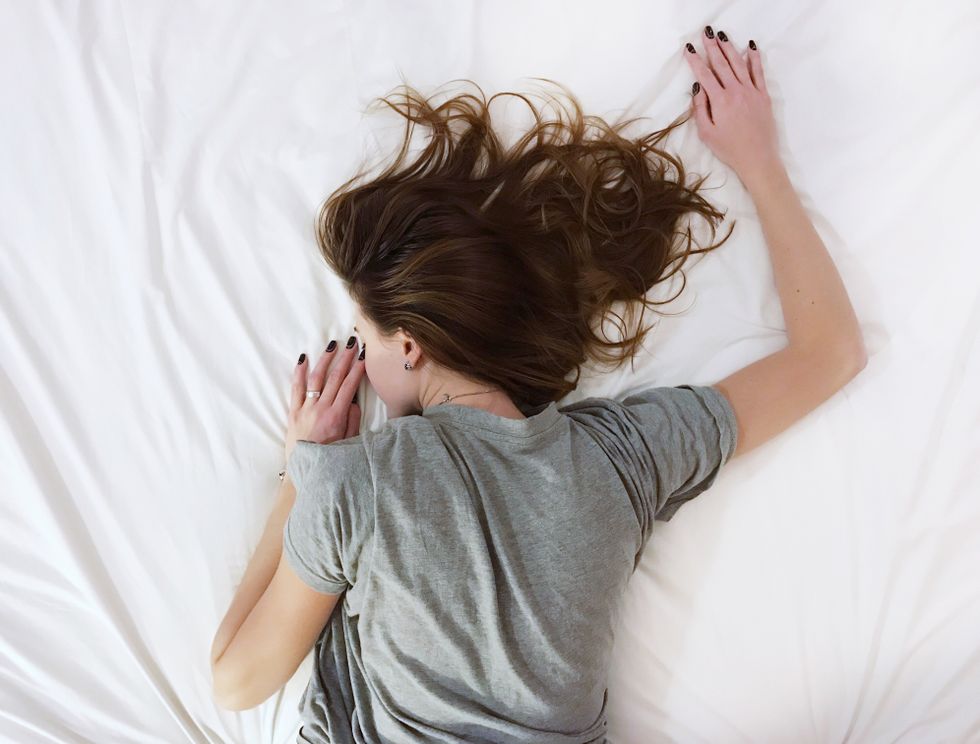
Daytime learning gets converted to memory when we sleep. Photo by Vladislav Muslakov/Unsplash
The quality of your slumber makes a difference onstage. Dr. Michael Grandner, a sleep researcher at the University of Pennsylvania, cites a study in major league baseball players: “The sleepier they were at the beginning of the season, the more likely they were to be demoted to the minor leagues before the next season.”
Why does sleep make such a difference? The genes that control the manufacture and transit of macromolecules to our cells are turned on while we sleep. “It’s like restocking the shelves in the supermarket at night,” says Grandner. These macromolecules—proteins, lipids, carbohydrates and nucleic acids—repair our cells (including muscles and bones) and recharge our immune systems.
The less sleep you get, the longer it takes to recover from minor aches and pains. Inadequate sleep also results in poor regulation of hormones that control appetite, and promotes weight gain. Researchers even compare lack of sleep to the way alcohol impairs coordination, mental acuity and stamina.
And don’t forget that the brain converts daytime learning to memory while we sleep. “Those skills that you learned during the day are being refined and improved while you sleep,” says Robert Stickgold, PhD, of Harvard Medical School’s Division of Sleep Medicine. “That’s why you have to get sleep the first night after you learn them.”
How Much Do You Need?
Seven to eight hours of sleep is considered good for most adults, although 9 to 10 hours is optimal until early adulthood (age 22 to 25). A 2011 study found that extending sleep even by one hour in college basketball players resulted in faster sprints and more accurate shots.
Naps can help, too. Just try to keep them to under an hour, and not too late in the day.


